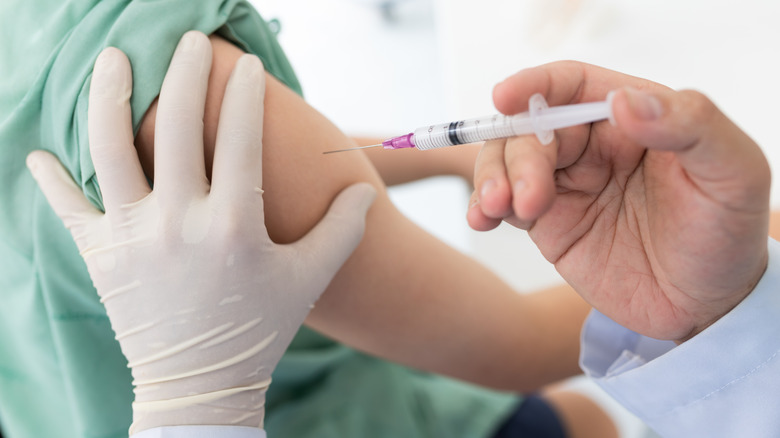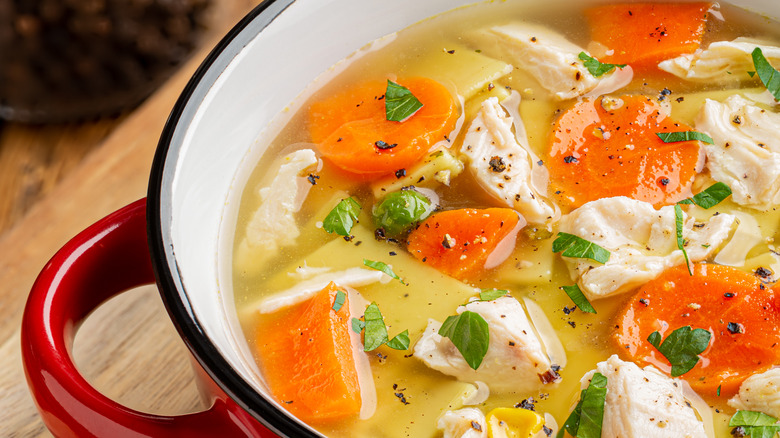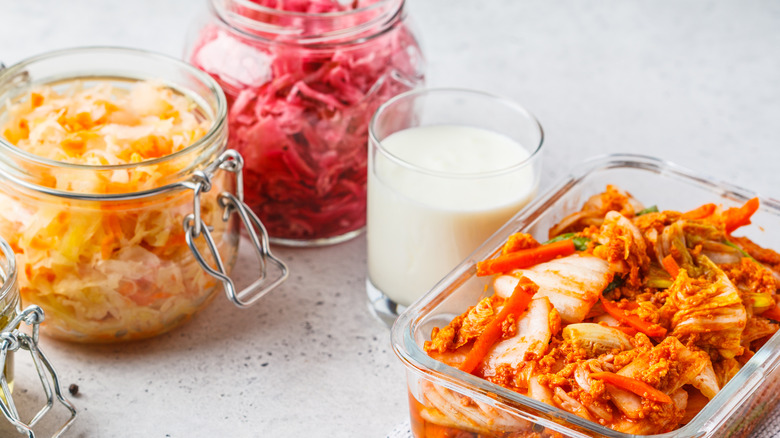What You Should Eat After Getting Your COVID-19 Vaccine
The vaccine rollout to protect the public against the COVID-19 virus is currently in full swing. And as the weeks pass by, a greater percentage of us are the becoming new owners of a COVID-19 vaccine card. If you are currently in line patiently waiting for your scheduled vaccination date to approach, it might be useful to use the time to find out how you can handle this process in the best way. We've mentioned what to do on the day of the vaccine, but now we would like to investigate a little further into what we can do post vaccination to help us best get back to "normal" daily activities.
According to the Centers for Disease Control and Prevention (CDC), the most common side effects linked to the available COVID-19 vaccines are: pain and swelling in the injection site, nausea, fever, headache, and tiredness. These symptoms aren't so fun to experience, we agree, but they are not a cause for concern as they are only signs the vaccine is starting to work. We can't tell you how to eliminate these sometimes disrupting side effects, but we can recommend the best foods to eat to help you manage your symptoms.
Look for soothing and hydrating options
Chicken noodle soup may have been grandma's go-to trick to fight off a cold, and as it turns out, it is also a highly recommended meal for individuals who have recently received the COVID-19 vaccination. According to HuffPost, the broth and soft veggies in the soup are both hydrating, and easy to digest, making it the perfect food choice if your stomach has been feeling a bit off since your vaccination occurred. Soothing ginger tea is also recommended for possible feelings of nausea. And remember to stay hydrated with water if you find you have a fever.
If receiving injections and the mere thought of needles has always made you a bit uneasy, we can understand why you might want to reward yourself with a glass of wine or a stiff drink after being vaccinated for COVID-19. But at least consider waiting a few days before you indulge in your deserved celebratory beverage. Health recommends staying away from the booze for a few days after being vaccinated, as alcohol can trigger dehydration making the side effects even more intense.
What you eat before your vaccination can also help with symptoms
Apparently, what you eat both after and before your vaccination can play a role in how your body accepts the new vaccination. Todd Born, N.D., C.N.S, a naturopathic physician and certified nutrition specialist in Washington, recommends via HuffPost to make sure your diet is rich in fiber and with foods that support a healthy gut microbiome. "Start two weeks before the vaccine and continue for a minimum of two weeks after," he says. Adding, "Fiber-rich diets encourage the growth of beneficial bacteria that support the immune response." Born goes on to recommend eating foods like yogurt, kimchi, and sauerkraut leading up to your vaccination and continuing to consume them for a few weeks post injection.
All of these recommendations sound easy (and delicious) enough to follow. But we would like to add that it might be wise to be prepared and dust off grandma's chicken noodle soup recipe to make before your vaccination (since you may feel too tired to do so after). That way it is ready to enjoy right after you're newly vaccinated.



